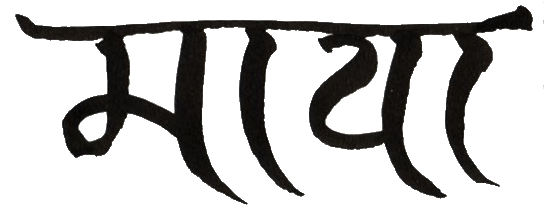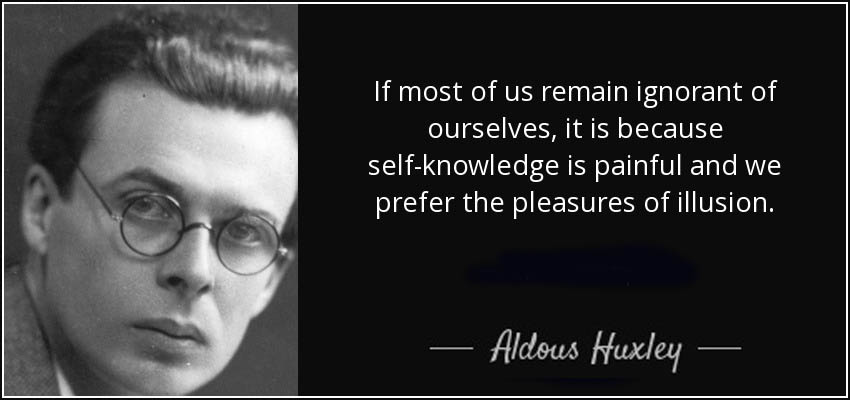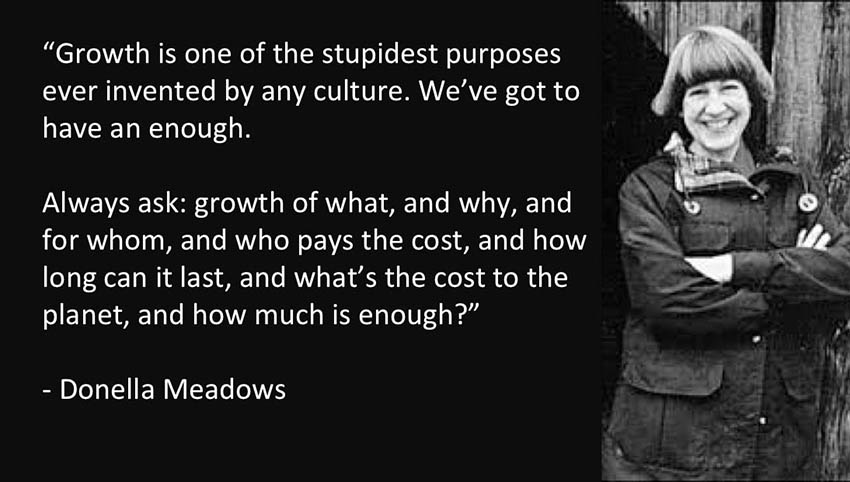Error, Ignorance and Illusion
“The world is Maya.” —Chandogya Upanishad

Maya: In Sanskrit, 'ma' means "to measure or to give form" and 'ya' translates to an article meaning "that." As long as the mind has the capacity to measure, to attribute form, it will create illusions (e.g. attribute reality to a concept/assertion/claim/theory/belief that is not out there; a climate model is not the climate).
If we endeavor to listen to Nature (the nature of things/systems) who has all the answers, our social constructs (consensus narratives) can iterate towards being less wrong. All stories we may tell, however, are untrue (are narratives about the putative).
If the mind has no other capacity but to measure, whatever our concept-forming mind measures is an illusion (is not the thing measured). Concepts are illusory IF BELIEVED IN.
A normal human constantly compares, condemns, likes, is 'for' or 'against' and plans (imagines a future that has yet to be based on a past that no longer is as seen through a memetic glass darkly) - all of which are measurement, illusion if believed in, however adaptive to hominins on the savanna our ability to tell stories may have been.
The condition of not believing in belief is enlightenment. Our pre-expansionist forager-nomad ancestors told stories but did not believe them.
The word meditation has its roots in the Latin meditari, meaning measurement. The idea of meditation is to not meditate (mentate).
- Maya: To measure (useful on occasion, but potentially fatal to sapience as belief-based illusion).
- Meditation: The end of all measurements (belief/illusion).
To have even the idea of meditation (or worse, doing it) is to go astray. The Self that would understand or meditate (to escape illusion, maya) IS illusion, as is the illusory Other within our dualistic minds. Our worldview is not the world.
The secret awaits for the insight that dysfunctional humans need to renormalize by letting go of our acquired belief in belief, the basis of 'for' and 'against' thinking (i.e. the worst disease of the mind, thought being our enemy). There is no Self or Other, no ego to die to, only error, ignorance, and illusion (the condition of storytelling animals who don't know they are telling stories). To have even the idea of 'ego' (or enlightenment) is to go astray. 'In life, be a dead man, be thoroughly dead; behave as you will, all is well.' –Shido Bunan (1603-1676 CE)

On narratives/paradigms: 'There is one leverage point that is even higher than changing a paradigm. That is to keep oneself unattached in the arena of paradigms, to stay flexible, to realize that no paradigm is "true," that everyone, including the one that sweetly shapes your own worldview, has a tremendously limited understanding of an immense and amazing universe that is far beyond human comprehension. It is to "get" at a gut-level the paradigm that there are paradigms, and to see that that itself is a paradigm, and to regard that whole realization as devastatingly funny. It is to let go into not-knowing, into what the Buddhists call enlightenment.'
'People who cling to paradigms (which means just about all of us) take one look at the spacious possibility [vastness without holiness] that everything they think is guaranteed to be nonsense and pedal rapidly in the opposite direction. Surely there is no power, no control, no understanding, not even a reason [narrative/story] for being, much less acting, embodied in the notion that there is no certainty in any worldview. But, in fact, everyone who has managed to entertain that idea, for a moment or a lifetime, has found it to be the basis for radical empowerment. If no paradigm is right, you can choose whatever one will help to achieve your [life-driven] purpose. If you have no idea where to get a purpose, you can listen to the universe.' [Nature, who has all the answers.]
'It is in this space of mastery over paradigms that people throw off addictions [their purpose-driven consumer life], live in constant joy [when not dealing with life debilitating situations], bring down empires, get locked up, or burned at the stake or crucified or shot, and have impacts that last for millennia.'
'There is so much that could be said to qualify this list of places to intervene in a system. It is a tentative list and its order is slithery. There are exceptions to every item that can move it up or down the order of leverage. Having had the list percolating in my subconscious for years has not transformed me into a Superwoman. The higher the leverage point, the more the system will resist changing it—that's why societies often rub out truly enlightened beings.'
'Magical leverage points are not easily accessible, even if we know where they are and which direction to push on them. There are no cheap tickets to mastery. You have to work hard at it, whether that means rigorously analyzing a system or rigorously casting off your own paradigms and throwing yourself into the humility of not-knowing. In the end, it seems that mastery has less to do with pushing leverage points than it does with strategically, profoundly, madly, letting go [of belief-based paradigms to enter into not-knowing] and dancing with the system.' —Donella Meadows, Thinking in Systems: A Primer]
